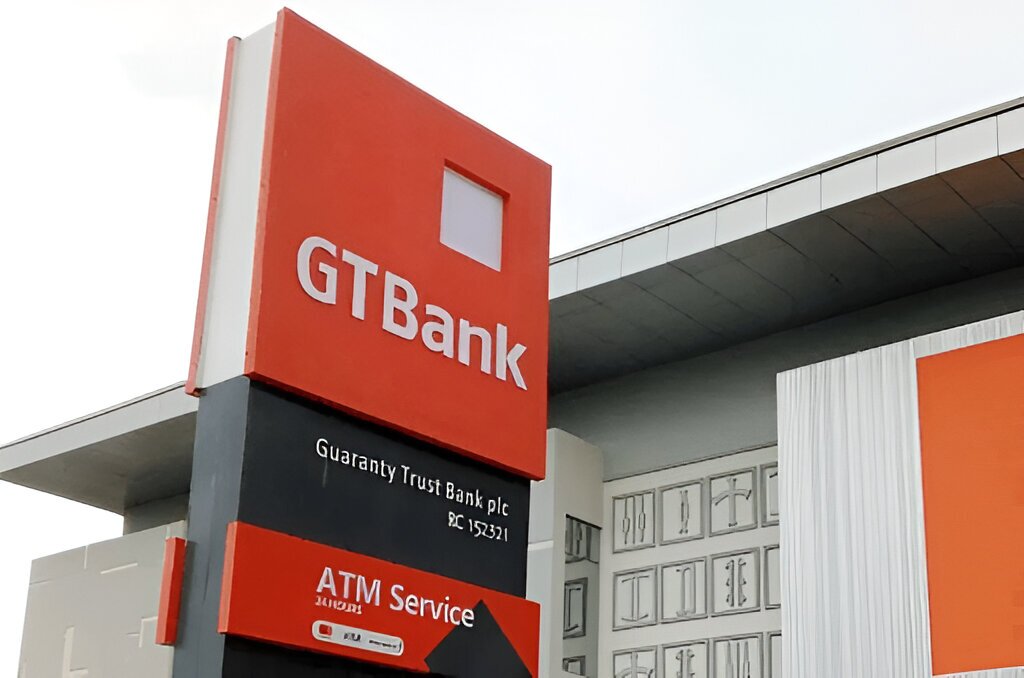Africa
Beyond The Hashtags: Rethinking The Social Media Courtroom Against GTBank -By Isaac Asabor
Because if we continue to turn social media into a courtroom where logic is sidelined, and emotion is judge, jury, and executioner, then the next brand, institution, or innocent individual to suffer unjust digital crucifixion might just be you or your company, peradventure you have a company.

In the age of digital hyper connectivity, where public perception is shaped in real-time and reputations can be dismantled in 280 characters or less, the recent controversy involving Guaranty Trust Bank (GTBank) brings to light a troubling evolution in the way society processes conflict and allegation. What was once the domain of law enforcement, investigative journalism, and judicial processes has now been commandeered by timelines and trends, where smartphones act as gavels, and hashtags replace due process.
The uproar began, like many social media storms do, with a post, a claim, an allegation. It quickly escalated into a public spectacle. Before the full details could surface, digital mobs had formed their opinions, crafted narratives, and begun meting out sentences in the court of public opinion. In this fast-moving arena, GTBank was cast not as a party in a dispute, but as a villain in a ready-made morality play, trial, judgment, and execution playing out in full view of millions.
The GTBank saga serves as a microcosm of a larger phenomenon: the weaponization of social media outrage. While the internet has undoubtedly democratized expression and empowered the voiceless, it has also introduced a new form of justice, immediate, impulsive, and often uninformed. The difference between a whistleblower and a witch-hunter is supposed to be evidence. But online, that line has become dangerously blurred.
What is most alarming is not the call for accountability that is legitimate and necessary in any healthy democracy, but the manner in which that accountability is demanded. The current culture rewards the loudest voice, not the most informed. It amplifies sensationalism over substance. And in that environment, individuals and institutions are often forced to defend themselves not against facts, but against narratives that have taken a life of their own.
GTBank’s attempt to respond to the allegations, however one evaluates the adequacy of that response, was already overshadowed by the tide of condemnation. It is telling that many who participated in the online uproar had no patience for follow-ups, clarifications, or context. Once a hashtag takes root, the truth becomes a casualty. Worse, it is replaced by viral soundbites, doctored videos, and emotionally charged threads that are shared not for clarity, but for clout.
This kind of online behavior fosters a dangerous precedent. Today, a bank is in the crosshairs. Tomorrow, it could be a hospital accused of malpractice without evidence. Or a teacher falsely accused of misconduct. Or an average citizen misidentified in a viral clip. Once the machinery of outrage is activated, there is little room for pause or reconsideration. The consequences can be catastrophic on reputation, finance, and overall image.
It is essential to underscore that none of this is a call to silence critics or to shield corporations from scrutiny. On the contrary, public institutions and private companies must remain answerable to the people. However, accountability must not be mistaken for digital lynching. To hold power accountable, we must first hold ourselves accountable to the principles that give our voices legitimacy, truth, balance, and restraint.
The situation also highlights a failure of media literacy and civic engagement. Many social media users lack the training or inclination to verify claims before sharing them. Emotional triggers, anger, resentment, frustration, override the cognitive processes that underpin critical thinking. In effect, we are becoming a society where feelings outweigh facts, and popularity eclipses principle.
Another key concern is the role of influencers and online personalities who, in pursuit of engagement and visibility, often throw fuel on the fire. Their platforms carry immense reach, and with that should come responsibility. Instead, many serve as echo chambers of misinformation, either knowingly or out of ignorance, while profiting from the chaos they help unleash.
GTBank’s response, in the midst of this, has been measured but limited by the structural disadvantage of responding to an emotionally charged mob. No matter how detailed or accurate their rebuttals, the damage had already been done in the digital arena, where perception often matters more than reality.
So, where do we go from here? First, Nigerians, and indeed netizens around the world, must cultivate a culture of verification and patience. Not every trending topic is what it seems. The truth often unfolds in layers, and responsible citizenship demands that we wait for those layers to be peeled back before drawing conclusions.
Second, digital platforms must do more to curb the spread of misinformation and encourage responsible discourse. Algorithms that prioritize outrage over accuracy are not neutral; they are complicit. There must be stronger penalties for coordinated misinformation campaigns and greater education on the ethical use of social media.
Third, journalists and traditional media must reclaim their gatekeeping role in verifying information before it becomes public fodder. The decline of fact-based journalism has created a vacuum filled by bloggers and influencers with little regard for editorial standards. Restoring trust in media means stepping up to fact-check viral claims and report the full story, not just the sensational parts.
Finally, users themselves must be willing to pause, think, and even apologize when they have contributed to a false narrative. The courage to delete a misinformed post or issue a correction should be valued more than the clout earned from going viral.
At its core, this is a question of what kind of society we are building. One where justice is swift, fair, and rooted in truth, or one where digital mobs wield unchecked power to destroy lives and brands at the click of a button. The answer lies in our collective ability to choose discernment over drama, evidence over emotion, and truth over trend.
Because if we continue to turn social media into a courtroom where logic is sidelined, and emotion is judge, jury, and executioner, then the next brand, institution, or innocent individual to suffer unjust digital crucifixion might just be you or your company, peradventure you have a company.
























